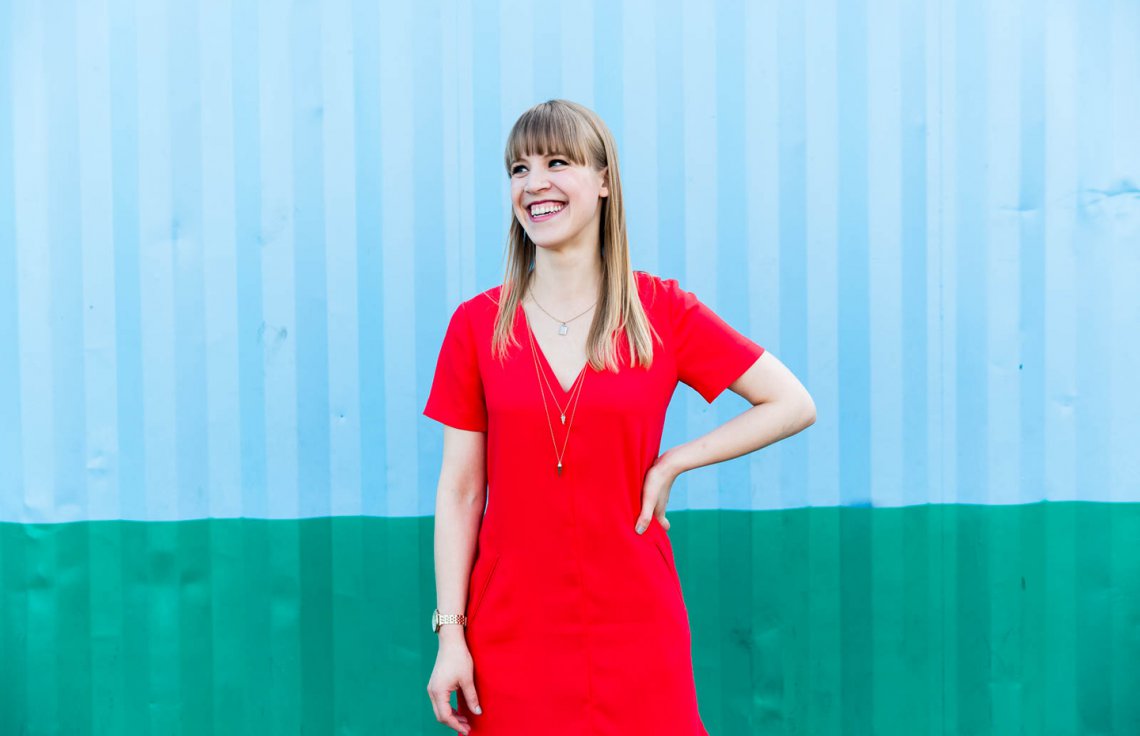Dr. Natasha Dagys Limones never leaves for work without wearing high heels on her feet and her heart on her sleeve. The 26-year-old always knew she wanted to work in a rewarding field where she could positively influence the lives of children, and so Natasha worked to combine her compassion with her career. Today, she’s living the dream as a school psychologist in the San Francisco Unified School District.
While earning her PhD in Education from the University of California, Berkeley, Natasha conducted rigorous scientific research in the field of psychology. Focusing on school psychology specifically, she gained an in-depth understanding of child development in the environment where kids and teens spend the majority of their time. In addition to her impressive academic credentials, Natasha also boasts a bilingual proficiency in English and Spanish. The native Spanish speaker's fluency has proved invaluable while working in a school district where 70 percent of her students are Hispanic.
On any given day, Natasha helps children deal with problems ranging from truancy and illiteracy, to poverty and domestic abuse. Through extensive observation, testing and counseling, the progress her students achieve makes all the hard work worthwhile. Always looking for new opportunities, Natasha hopes to grow her career by opening her own private practice one day. Though it is unclear just what the future holds for her career, the positive impact Natasha has on her community could not be clearer.
Her Starting Point
We’re curious—did you always know that you wanted to go into educational psychology? When did you know you wanted to pursue it in a school setting?
I’ve always enjoyed working with kids and teens, and by the time I started college, I knew that I wanted to major in psychology. I also knew that I wanted to go to graduate school right after college (a Bachelor’s degree doesn’t get you very far in the field of psychology). I discovered school psychology when I started researching graduate programs, and as I read up on the field and shadowed school psychologists, I realized that this would be a perfect fit in terms of practicing psychology with kids in the setting where they spend the majority of their day. That said, I also wanted to keep my options open in case I ever decided to no longer work in the school setting. That’s why I chose to get a PhD instead of just a Master’s degree, so that I would get more training in scientific research and have additional career options, such as private practice, research and teaching at the university level.
While at UC Berkeley, you did research focused on the consequences of sleep deprivation in adolescence. What kinds of results did you have? With kids being so involved nowadays, has sleep deprivation become a growing problem?
My research focused on how sleep deprivation in adolescence impacts teens’ emotions. In the experiment we measured teens’ positive and negative emotions, both after a night of typical sleep and after a night of sleep deprivation. We also compared the negative and positive emotions of morning types and evening types across both conditions.
There were two interesting results. First, when teens were sleep-deprived, they reported more negative emotions. Second, evening types reported more negative emotions in both conditions. One key implication from these results is that teens who are evening types and sleep deprived (and show the greatest levels of negative emotions) may be most at-risk for emotional problems.
In my work in schools, I have seen sleep deprivation to be a huge issue, particularly in middle and high school. There are many reasons for sleep deprivation, including later bedtimes, earlier school start times, more homework, extracurricular activities and employment. What’s sad is that many teens realize that they are sleep deprived and wish they could sleep more, but they feel like there is no way to do all that’s required of them and still get the recommended minimum nine hours of sleep per night for teens. Some teens really don’t have a choice, particularly when they have to work to support themselves or their family.
That said, there is some hope. There have been some schools that have actually changed their start times and as a result their students are getting more sleep, being absent less often, getting better grades and showing more positive attitudes at school. I am hopeful that as awareness of the consequences of sleep deprivation increases, more schools take steps to address this growing problem and bring about change.
In 2013, you got your PhD from UC Berkeley the same week as your wedding. What a week! Was that nerve-wracking? What kind of planning went into both ahead of time?
Oh, my gosh—yes! That week was a whirlwind. I had about a year to both plan my wedding and do my dissertation, so a lot of planning and organization had to be put in place from the very beginning. My mom also was a huge help in planning the wedding, and I really couldn’t have done it without her.
One thing that helped me tremendously was staggering the timelines for both “projects.” I had to be very purposeful about backtracking when things needed to get done, and I used the wait times of one project to work on another. Another thing that helped was having to-do lists for everything. Every night when I came home from work, I looked at that list and tried to scratch off at least one or two things. Finally, My iPhone was a lifesaver in terms of staying in touch with committee members, wedding vendors and the wedding party! And my daily cup of java gave me the energy to keep going day after day.
How has your bilingualism been beneficial when working with students in the San Francisco Unified School District?
Being a native Spanish speaker has been crucial in my work at SFUSD, because at least 70% of students at each of my assigned schools are Hispanic. Being bilingual has allowed me to communicate with families in Spanish and to provide services in both languages. I’ve also been able to conduct bilingual assessments for disabilities, which has been very important since it’s my job to determine whether a student’s academic difficulties are primarily due to English proficiency or to a disability (e.g., learning disability, ADHD, intellectual disability, etc.). Finally, being a first-generation Latina (I moved with my family from Uruguay to the U.S. at the age of 11) has helped me identify with the struggles of immigration and acculturation that many of the families I work with have.
Her Big Break
What is one of the biggest issues you are faced with on a daily basis? What does a day-to-day schedule look like for a school psychologist?
One of the biggest issues on a daily basis is the overwhelming amount of needs I face every day. By definition, my job deals with problems, so although I get a lot of work done and see progress in students, new referrals keep on coming. I also work with kids who experience multiple risk factors, such as poverty, trauma, domestic violence, parent illiteracy, homelessness, poor attendance and learning English as a second or even third language. Any one of these factors could make it harder for kids to do well in school, but when these kids have multiple risk factors, it’s much more challenging to meet all their needs. But, I try to focus on what I can do and celebrate the progress I do see.
My day-to-day schedule really varies. On any given day I could spend time counseling, meeting with parents, consulting with teachers, testing students, doing observations or sitting on pre-referral meetings. That said, here’s a glimpse of a typical day:
5:30 a.m.: Wake up and get ready for the day
7:00 a.m.: Catch up on podcasts during my morning commute
8:15 a.m.: Arrive at school, have a brief consultation with a teacher in the hallway about a student’ behavior plan, check email
8:45 a.m.: Observe a student referred for behavior problems
9:15 a.m.: Start cognitive testing for a student with a potential learning disability
10:30 a.m.: Do paperwork, schedule meetings, review student files and referrals for assessment
11:00 a.m.: Counseling session with a student struggling with depression
11:35 a.m.: Finish cognitive testing for a student with a potential learning disability
12:20 p.m.: Munch on food while chatting with teachers in the lounge
12:45 p.m.: Work on assessment reports
2:00 p.m.: Counseling session with a student lacking social skills
2:30 p.m.: Interview a parent to gather background history for special education assessment
3:00-4:00 p.m.: Sit in pre-referral meeting
4:00-5:00 p.m.: Check email, write to-do list for next time I’m at this school, review schedule for next day
5-6:30 p.m.: Listen to music and call my family during evening commute
6:30-7:00 p.m.: Cook dinner
7:00 p.m.: Dinner and downtime with my husband
8:00 p.m.: Pilates workout
8:30 p.m.: Catch up on social media and my favorite blogs
9:00 p.m.: Get ready for bed
10:00 p.m.: Bedtime!
Tell us why the combination of child development and education was a no brainer for you. How has the duality of these interests played into your current role?
You can’t fully understand child development without considering the setting where this development happens the majority of the time: at school. Schools are a fertile ground for the development of academic, social, emotional, leadership and pre-vocational skills, so when you see kids at school, that’s when you can best understand how they are functioning and developing. That’s why studying child development and education was a no-brainer for me and why I chose my current role. As I work with kids in school, I can observe them in their “natural habitat” and get a clear picture of how they’re functioning. If I saw them in an outpatient or private practice setting, I would have a very limited perspective of how they are developing. Working in schools I also get a better sense of the community they live in, which, in turn, lets me understand how community and family factors may be impacting their functioning at school.
What kind of relationship do you have with the parents of your students? How important is that relationship to your overall goals?
Whenever I evaluate a child, I interview the parent to get their input and concerns. Educators are the experts in learning, but parents are the experts in their child. It’s so important to have their input and cooperation when we’re trying to support their child’s function level. Some parents are more involved than others, but I think it’s my duty to explain to parents what we are doing as educators and to help them understand what they can do to help their child do better in school. It’s also my job to make sure parents understand their rights, particularly when it comes to special education services.
Her Perspective
What’s the best advice you ever received relating to your career?
Figure out where you want to go and make goals to get there. Success, whether in a career or any other aspect of life, rarely happens by chance. You have to take the initiative to make things happen.
If you have an idea at work, take the initiative to come up with a proposal, present it to your supervisor and take the lead in carrying that idea out. If you want to work for a particular organization, make connections with people there, visit the location and communicate your desire to join their team. If you want to achieve a certain goal within five years, figure out what the steps that will get you there are and then backtrack so that you can meet those milestones in time. If you wait for opportunities to land in your lap, you could be waiting for a very long time, but if you take the initiative to grow your career, you’ll be amazed at how quickly things can happen.
You wrote a great article about the tendency we all have to compare ourselves to others. What advice would you offer to young women starting their careers in order to minimize this constant comparison?
Comparison is not always a bad thing. It can be great for getting inspired, for seeing what is possible and for learning from the experiences of others. However, comparing ourselves to others can quickly become unhealthy and a source of resentment, sadness, bitterness or insecurity.
I have two pieces of advice I would give young women starting their careers with regards to comparison. First, focus on what you’re learning instead of what you don’t know. Instead of using your energy to compare yourself to others, channel that energy into setting goals for growing professionally and developing your skills.
The second piece of advice is to remember that it’s normal to experience the well-known psychological phenomenon called “impostor syndrome” that happens when people take on a new role. It’s normal for people to question whether or not they’re really capable of doing their jobs, to feel as if at any moment others will figure out that they really aren’t fit for the job, and to have difficulty seeing their accomplishments. Just remember that this happens to everyone, so what you can do is to monitor your own progress, give yourself credit, and celebrate your achievements.
In your down time, you enjoy reading and playing piano as well as getting involved in your church. How do you find time for leisure in the middle of growing your career? What advice do you have for women trying to achieve work/life balance?
My husband shared with me once that at his company, they emphasize work/life fit instead of work/life balance, because they acknowledge that things are not always going to be balanced. This is something I’ve really taken to heart. I love my job, and overall, my career is very satisfying and energizing. That said, I also have other jobs—taking care of myself, investing in my marriage, building friendships, growing my spiritual life and planning for the future. I have to have firm boundaries at work and prioritize my time at home over whatever “job” needs attention at the moment. And I try to take advantage of the “fringe hours,” those times throughout our day that go underused (e.g., commuting, waiting at the doctor’s office, etc.). There’s a great book titled, The Fringe Hours: Making Time for You that I’ve wanting to read that addresses that very issue. We often complain that we don’t have time for ourselves or for our personal lives, but I think if we take inventory of all our waking hours, we can often find blocks of time that we could put to good use.
And finally, what do you wake up looking forward to? What’s next for your career?
Every day I wake up looking forward to making a difference in the lives of children and developing positive relationships with my coworkers and the families I work with. I thrive on task-oriented projects, but ultimately my job is about people. I am so excited each day that I can go to work and impact the lives of others in a very visible way. My career right now is very rewarding, and I really couldn’t ask for more. That said, as I continue working in schools I also want to start building my private practice so that I can increase the scope of my work. I’m excited to discover what new opportunities will arise in the next several years!
You May Also Like
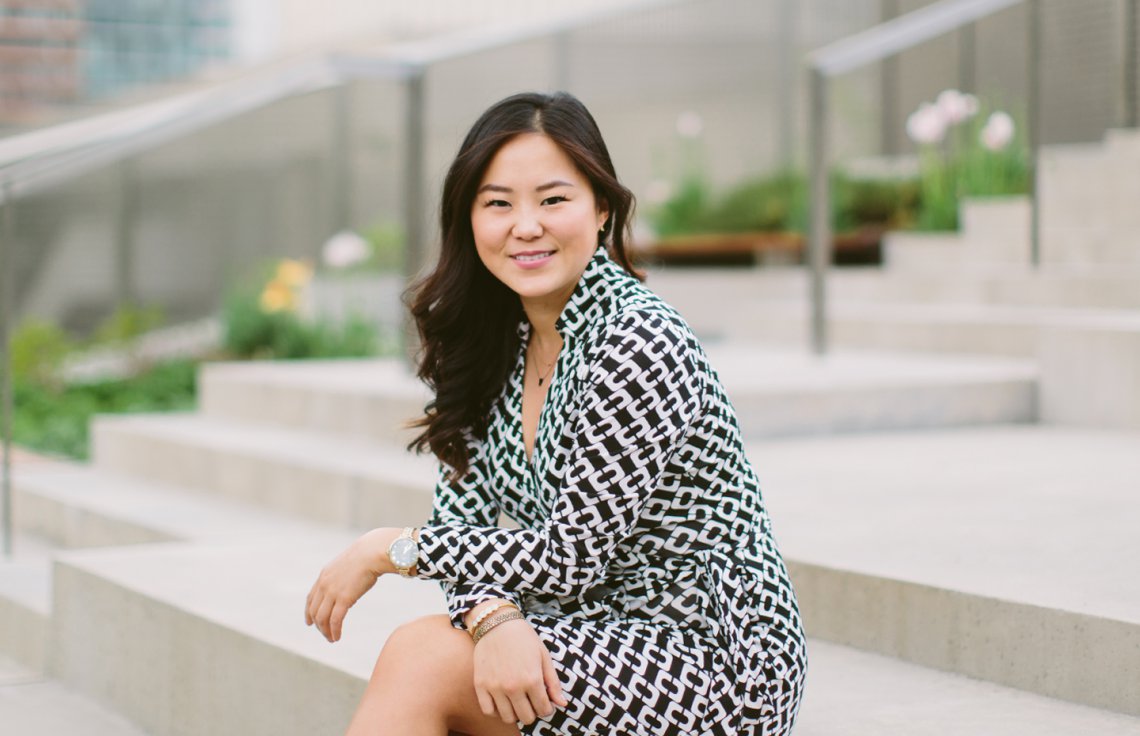
Government + Public Policy
How to Become a Foreign Service Officer
Ever wondered what it would be like to work in Foreign Affairs? Gloria Chou knows, and she's spilling.
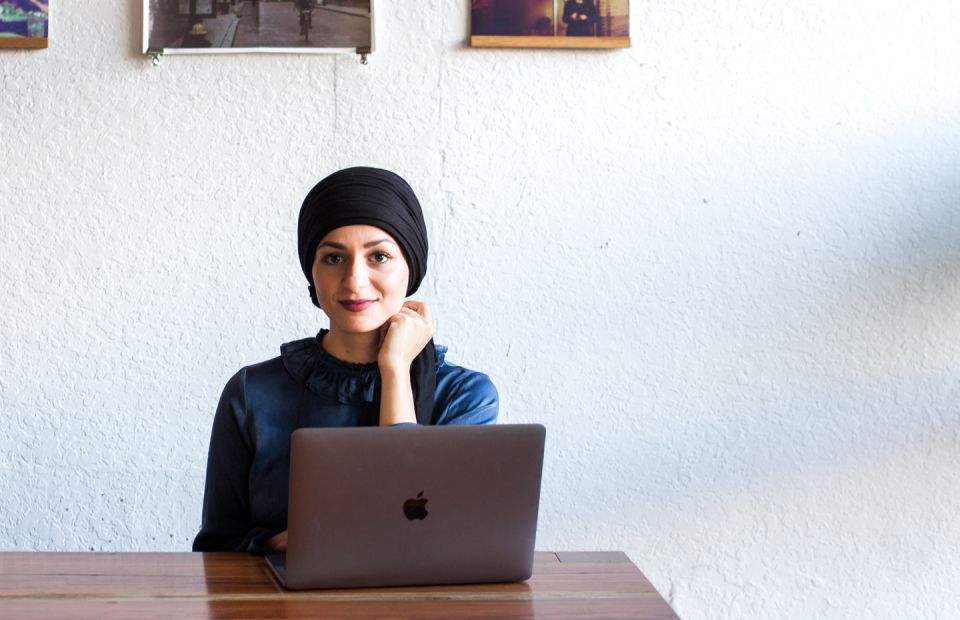
Government + Public Policy
Noor Elkhaldi on Taking a Break From School to Work as an SVU Counselor
"You cannot care for others if you do not care for yourself."
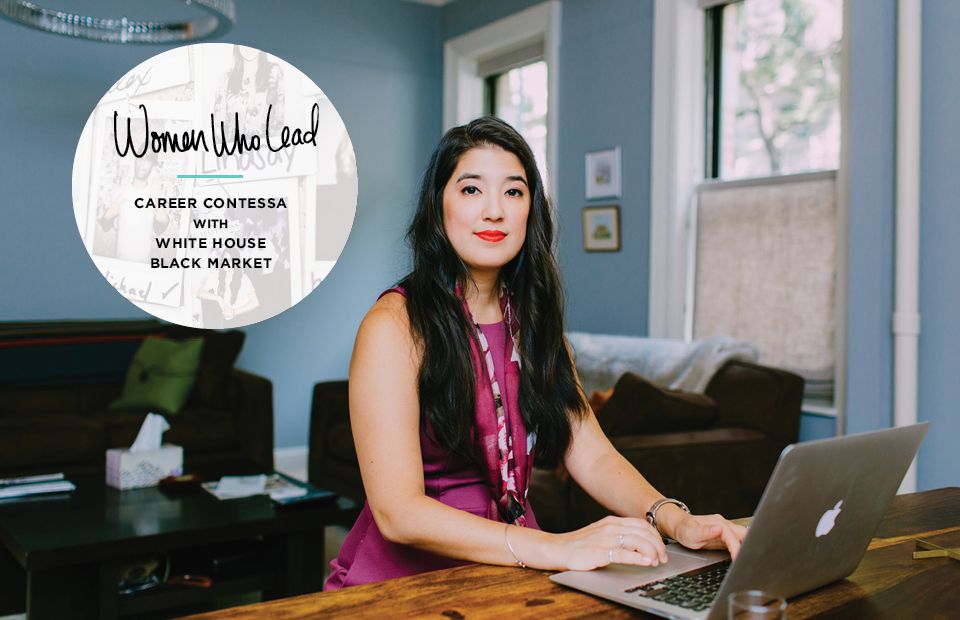
Consumer Services, Education, Finance
Women Who Lead: Alexandra Dickinson, Founder and CEO of Ask For It
On taking risks and asking for more—always.
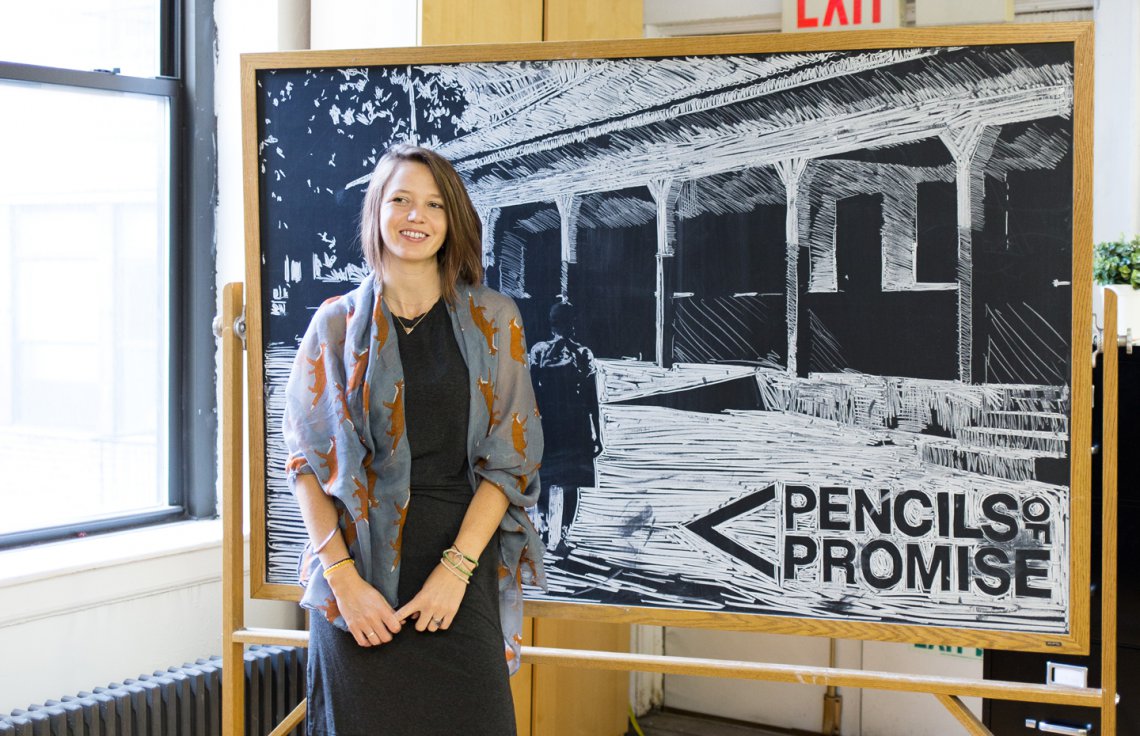
Nonprofit, Social Responsibility
Leslie Engle Young on What a Director of Impact Actually Does
This philanthropic globetrotter found her dream career working at Pencils of Promise.
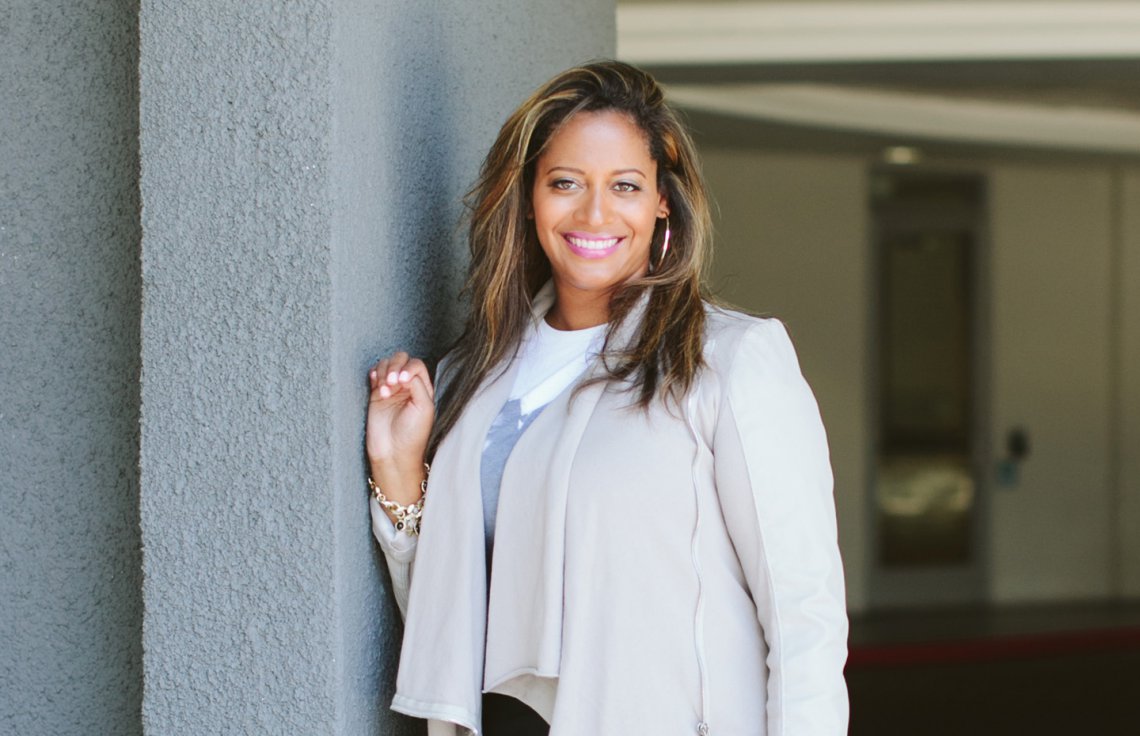
Entertainment, Government + Public Policy
Meet the Woman Behind Your Favorite T.V.
See how Candace's legal background has helped her climb the ladder to a director role at Sony Pictures.
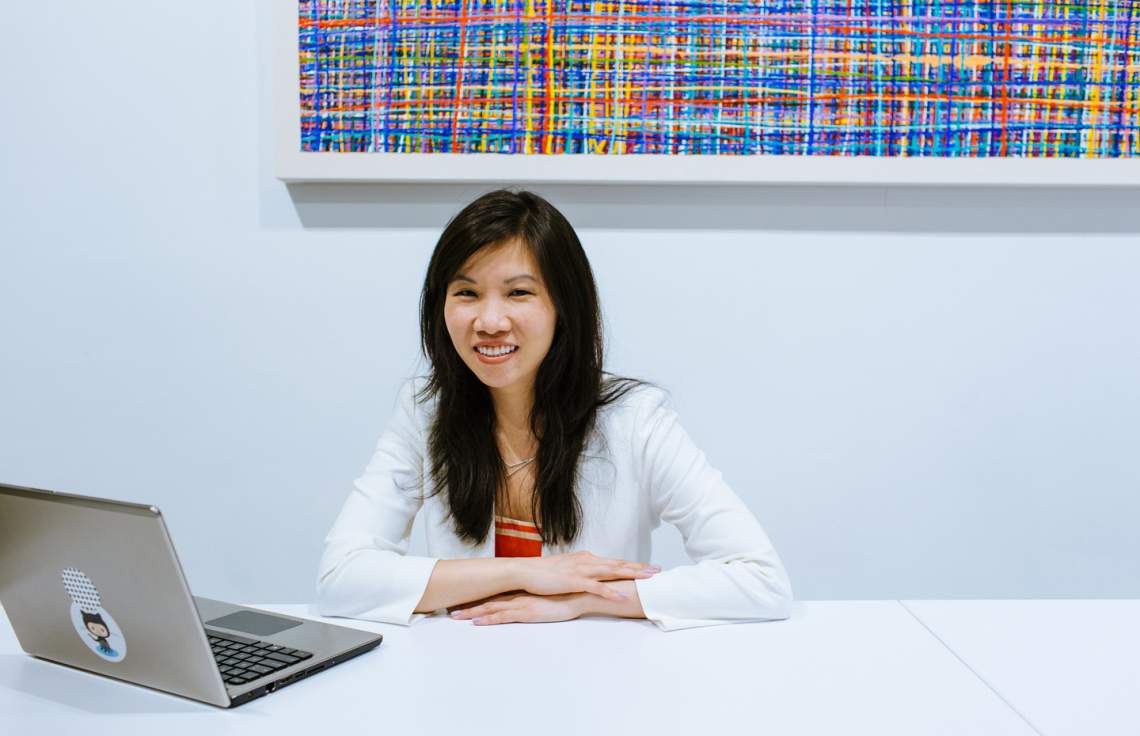
Government + Public Policy
This Millennial Entrepreneur Talks Politics, Activism, and...How to Vote?
Election season's almost over, but Maria Yuan's company, IssueVoter, is just getting started.
Get the Best Career Advice Delivered To Your Inbox
Join our newsletter to stay in the loop.
